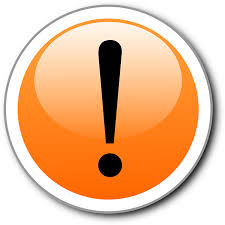Top tips from Mesmo Consultancy (and Associates) on how to save time and improve business and personal performance by ‘Taking Control of your Inbox’ and using proper business email etiquette.
Being alerted when each and every new email arrives is now accepted as one of the major drains on our productivity along wit the general email overload it causes. Working efficiently means turning off all those new email alerts.
Ah but ‘I need to see emails from X as they arrive’ is usually the most common rebuff. Well you can be selective. Write a rule which does indeed alert you to such new arrivals. Here is how for Outlook users.
Now you can focus on the task in hand without being distracted by every new as it arrives, and just allow emails from X pop-up as they arrive.
For more tips like this to help you improve your personal productivity and work-life balance see ‘Taking Control of Your Inbox‘
Tags: email overload, improve personal productivity, Outlook Rules, Work life balance
The key is not to prioritise what’s on your schedule but to schedule your priorities.
Stephen Covey
You decided not to allow the arrival of each new email to distract you and instead deal with them in batches. What is the best way to manage your time when dealing with email is a question I am often asked. The most important decision is how much time to allocate before suffering email overload. Fifteen to sixty minutes is a good yardstick. Be ruthless and don’t just keep going, otherwise other important tasks will not be done.
You may need to make a meeting with yourself to deal with your email. If you have a day of meetings you will need to deal with them in the margins.
The key is to review and prioritise, based on the email’s subject-line, and decide what is either urgent or important and deal with
these first.
2. Pomodoro. Allocate a specific block of time which you then break up into smaller chunks, traditionally of 25 minutes.

Pomodoro – Email Overload Time Management
(Smaller chunks also work.) Take a five minute break between each chunk and mark up your progress (eg 10 emails actioned and foldered out of the 30 which need attention).
Invented by Francesco Cirillo (a German designer) he called it Pomodoro because he used a tomato shaped timer and pomodoro is the Italian word for tomato. Keeping check on your time is essential with a conventional watch, Pomodoro timer (but might annoy colleagues) or an app. Click here for a review of some good apps and more help in using the technique.
3. Salami Slicing. Excellent when faced with a chronic attack of email overload. As the name suggest, slice the seemingly impossible task of reaching inbox zero (or at least a clean inbox) into much smaller achievable tasks which can easily be done in little blocks of time often 20 minutes. For example, dealing with meeting invites, responses to requests for information, approvals etc. You can now use the Pomodoro technique to help you.
Which ever technique you adopt, be careful not to leave a seemingly unimportant email which then become both important and urgent as this is a recipe for stress and disaster.
For more tips and advice on time management to prevent email overload see ‘Taking Control of Your Inbox’ or come on one of Mesmo Consultancy’s Brilliant Email Management workshops.
Tags: Alan Lakin, email overload, Mesmo Consultancy, Pomodoro, Salami Slicing time management, Swiss Cheese time management, Taking Control of Your Inbox
March saw the loss of two of the technology world’s giants, Ray Tomlinson (see articles of note) and Andy Grove who built Intel into the company we now know. Grove was Hungarian but but like many fled in 1956. Despite a thick Hungarian accent (like his compatriot George Solti) he became one of the technology industry’s greatest communicators and strategists.
His mantra was that to survive a company must constantly be on the look out for competitors that emerge and change the business landscape. He documented his management style in ‘Only The Paranoid Survive’ which for many of us ranks as one of the top ten management books ever published. I contains some wonderful gems like:
‘…it makes me scan my emails at the end of a long day searching for problems: news of any disgruntled customers, potential slippages in the development of a new product….’
‘Classify the time you spend listening to them (the Cassadras in your network) as an investment in learning what goes on at the distant periphery of your business ….’
He invented the Dynamic Dialectic matrix to identify how well companies might survive depending on how well their top-down and bottom up actions are aligned.
Grove’s book should be mandatory reading for every would be entrepreneur and CEO.
Tags: Andy Grove, Hungarian, Intel, Only The Paranoid Survive, Ray Tomlinson
The death of the inventor of email prompted several authors and producers to reflect on not only the future of email but also letters .
.
2. The future of email – the BBC put together a short piece for NewsNight about whether or not email will survive another 30 years. Probably, yes but hopefully we will be making better use of alternatives for both sharing and sending short ephemeral communications.
3. What might the world with less email look like? Alexandra Samuel provides a very good and practical insight and reviews the good and bad side of using alternatives to email and especially from the perspective of archiving material.
4. Lost in digitisation? As if reading Alexandra’s thoughts, Robert Shrimsley in the Financial Times questions what treasures will remain if we no longer either write with pen and paper or worse still use social media sights where the message/photo disappears once seen (like Snapchat). Will we still have any great letters and photos to help us form a picture of like in the 21st Century as our forefather left us a century earlier?
And
5. Stopping a potential email war. How does the response of ‘points noted’ strike you? Passive aggression or a very smart way to stop a potential email war?
6. Email with no regrets. Sadly an email sent is rarely if ever deleted. There is always someone somewhere who will have kept a copy and produce it just when you least expected. Here are some tips on how to minimise if not obliterate the need to feel remorse after sending an email.
Tags: Alexandra Samuel, BBC, Email war, future of email, Pasive Aggression, pen and paper, Ray Tomlinson, Robert Shrimsley
Sadly an email sent is rarely if ever deleted. There is always someone somewhere who will have kept a copy and produce it just when you least expected.
Yes, in Outlook you can recall an email. However as soon as one sees that recall message I defy anyone not to be tempted to open the offending email!
Here are a few recent email scandals where the sender is probably bitterly regretting they ever sent the original email.

Email regrets
There is nothing new about emails you wish you had never sent. It is that somehow we never seem to learn good email etiquette and that email sent, is an email kept for life. Within everyday business you can take three easy steps to reduce the risk of creating an email scandal.
1. Resist hitting Reply All – check who is in the To and CC address box and make sure you are sending it to the right people.
2. Think and re-read your email before hitting send. Ask yourself what if this turned up on the wrong person’s desk?
3. Practice the art of ‘slow email’. Write a rule to put every email into a holding pattern before it leaves your inbox.
For more suggestions see Mesmo Consultancy video on how the manage the risks of cyber crime and leaking confidential information.
How do you have a preferred way to manage these risks to ensure you have no regrets about the emails you send?
Tags: email etiquette, email scandals, Mesmo Consultancy, Recall email, Slow email